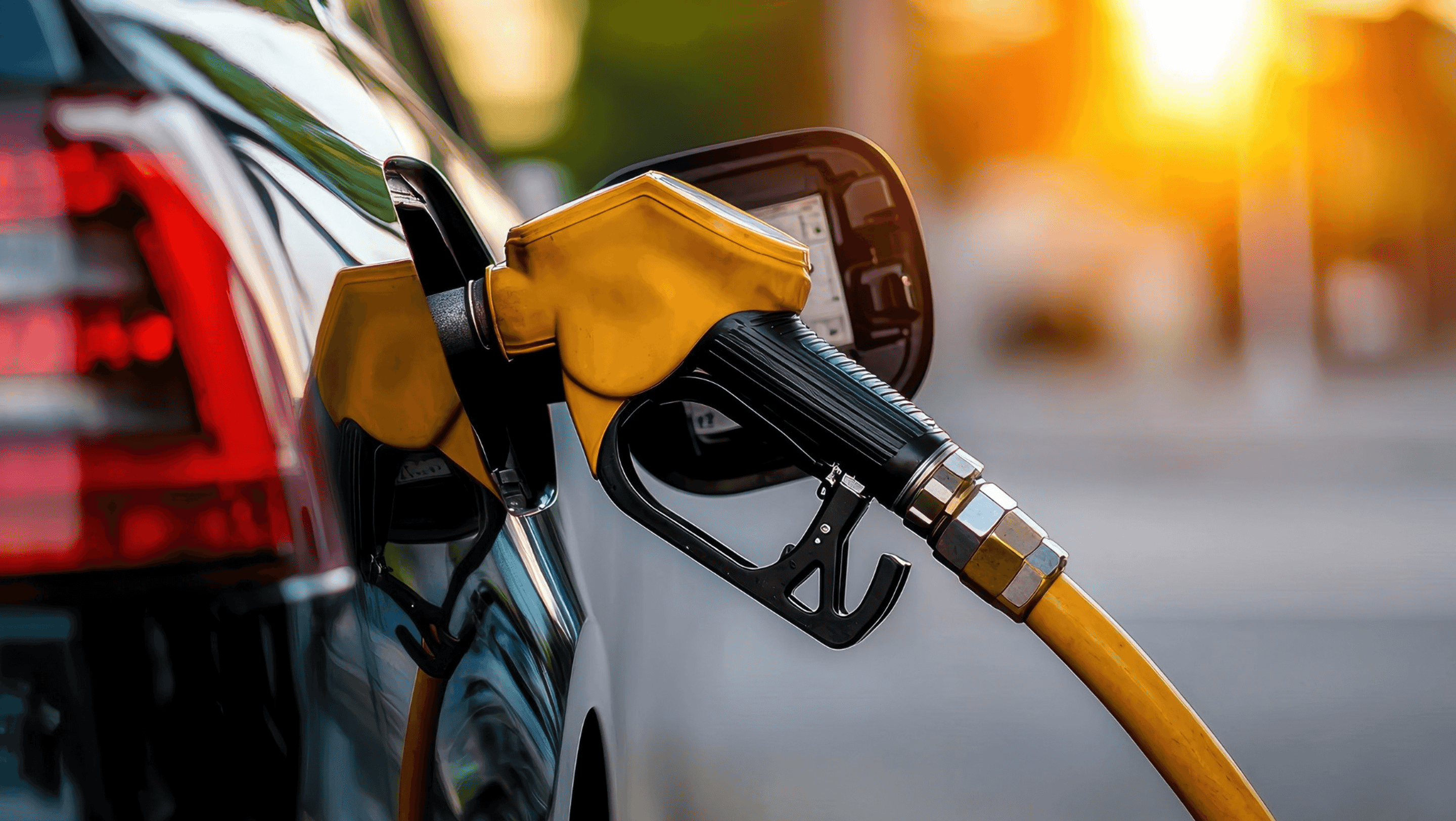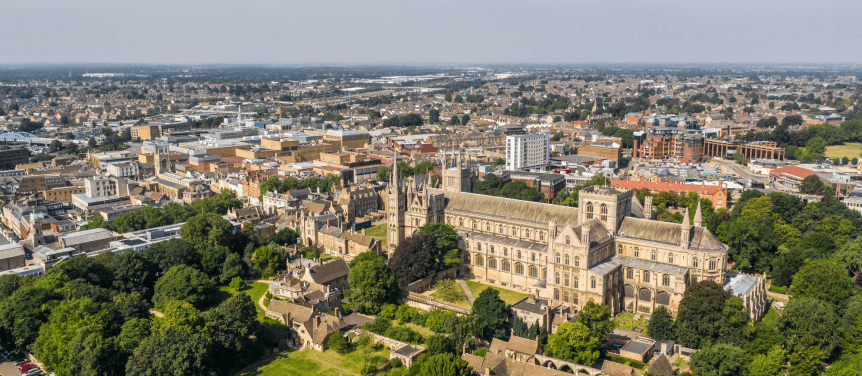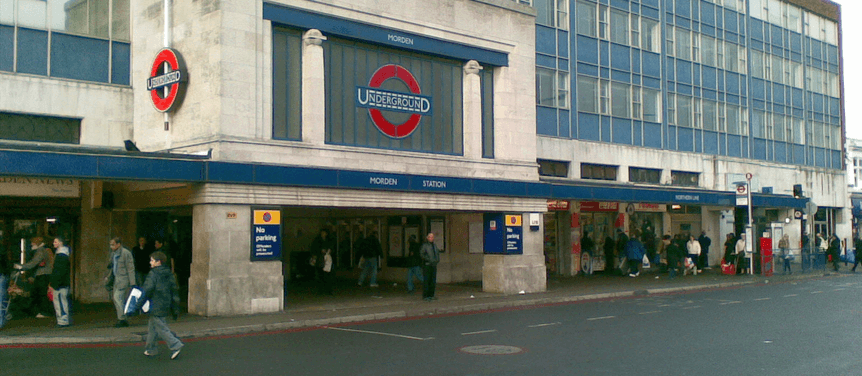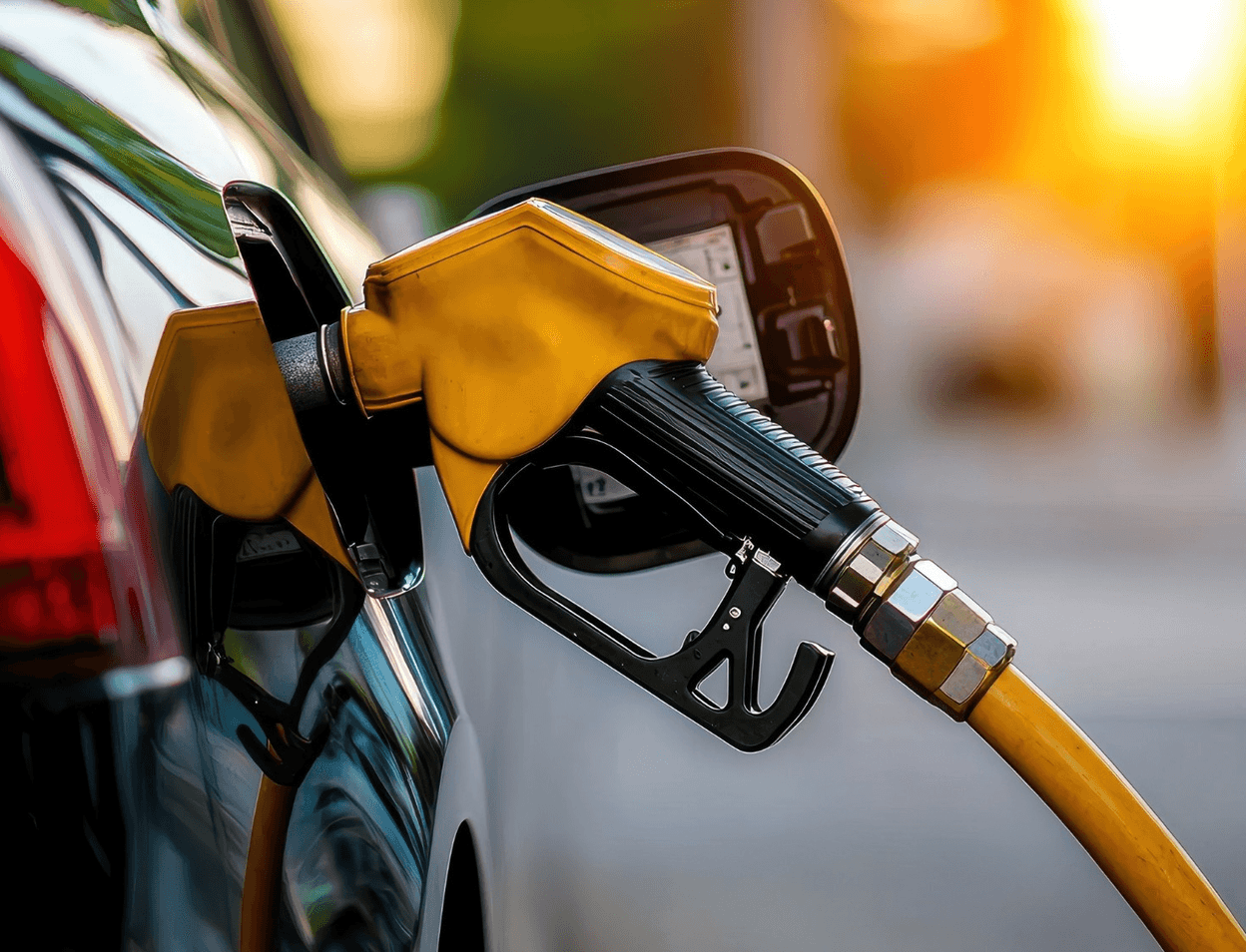
Understanding fuel prices in the UK: How much you should expect to pay and ways to save when driving on the daily
With fuel prices influenced by so many factors, keeping costs down is challenging, but there are ways to make a difference.
Fuel prices in the UK are a major concern for drivers, and with prices fluctuating due to various factors, it can be challenging to budget for fuel costs. Factor in vehicle maintenance, insurance, and parking, and you need to start seriously budgeting when driving on a regular basis.
This guide will help you understand how fuel prices are determined, what factors drive fluctuations, and practical ways to save on fuel.
What affects fuel prices in the UK?
Fuel prices are influenced by several global and domestic factors. According to the RAC, a few key elements drive the price per litre of petrol and diesel in the UK:
Crude Oil PricesThe largest component of fuel prices is crude oil, which fluctuates based on supply and demand on the global market. Events such as international conflicts, natural disasters, and production changes by oil-exporting countries affect the cost of crude oil.
Exchange RatesSince crude oil is traded in US dollars, the pound’s strength affects fuel prices. A stronger pound usually means cheaper fuel, while a weaker pound can make fuel more expensive for UK drivers.
Fuel Duty and VATTax makes up a significant portion of UK fuel costs. Fuel duty is currently set at 52.95 pence per litre (as of 2024), and VAT is added at 20% on top of the total cost (fuel price + duty).
Refining and Distribution CostsRefining crude oil into petrol and diesel, along with distributing it to petrol stations, adds to the overall price per litre. This cost can vary based on refining capacity and demand levels.
Local CompetitionThe presence of nearby stations and their pricing strategies can influence prices locally. For instance, motorway fuel stations are typically more expensive than urban or suburban locations due to less competition.
How much does the average UK driver spend on fuel?
In 2023, the average price of petrol in the UK was around 145.7 pence per litre, while diesel was 155.5 pence per litre (based on AA data). For drivers covering 12,000 miles per year with an average fuel efficiency of 40 miles per gallon, that’s around £1,450 to £1,550 annually on fuel.
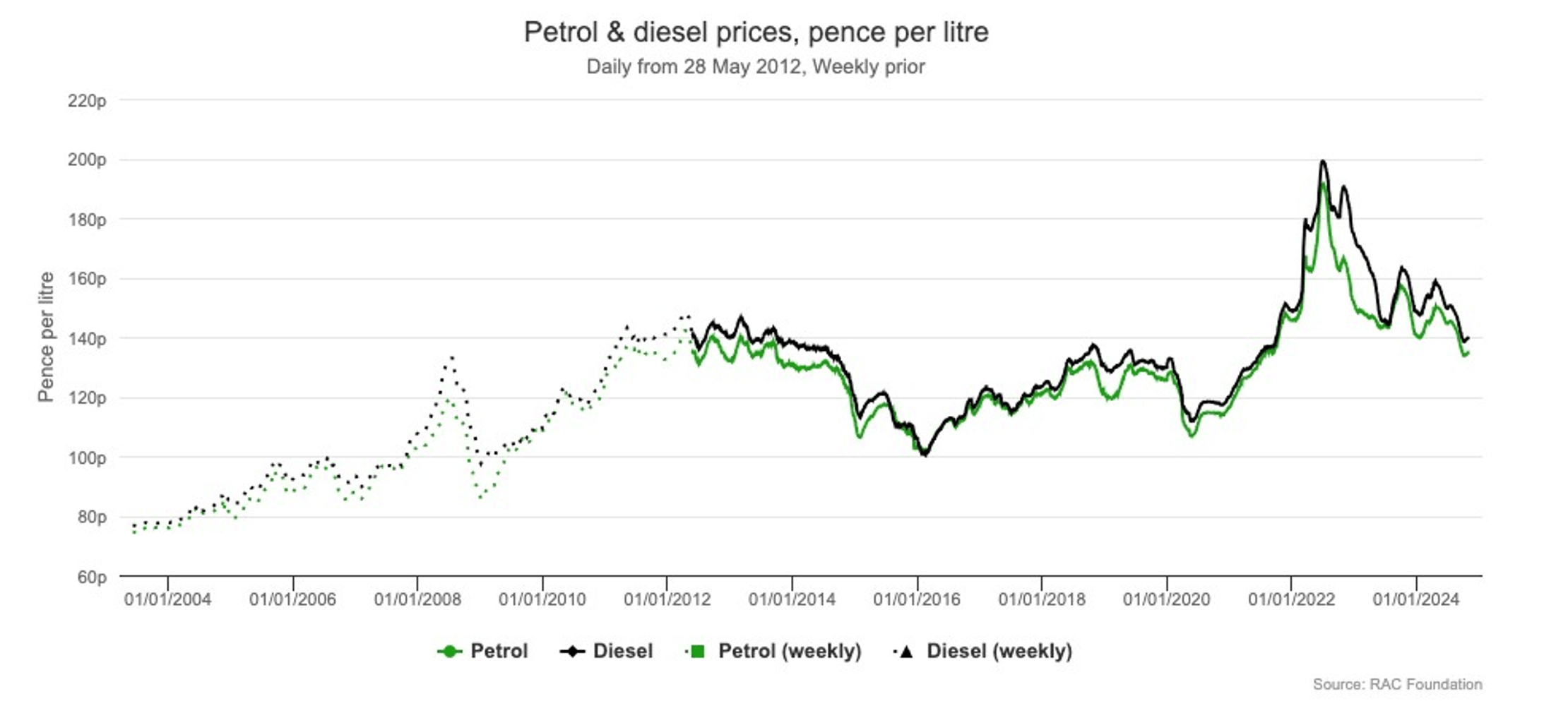
A few recommended steps you can take to save on fuel costs
Here are some practical ways to save on fuel costs in the UK:
Plan efficient routes: Use navigation apps like Google Maps or Waze to find the most fuel-efficient route. Avoiding congested areas or taking alternative routes can save time and reduce idling, which consumes more fuel. Booking your parking ahead of time using apps like JustPark will cut down on your driving time significantly when in busy city centres or near crowded landmarks.
Drive smoothly: Driving habits impact fuel consumption. Avoid rapid acceleration, excessive braking, and high-speed driving, as these burn more fuel. Sticking to speed limits and maintaining a steady speed can improve fuel efficiency by up to 25%.
Regular vehicle maintenance: Proper maintenance, such as keeping tyres inflated to the correct pressure, replacing air filters, and ensuring regular engine checks, can enhance fuel efficiency. If you’re due for an MOT soon, you can compare the best deals near you using our website.
Use loyalty programs and fuel cards: Many petrol stations, such as Shell and Tesco, offer loyalty programs that give discounts or points for future purchases. These programs can lead to significant savings over time.
Avoid carrying excess weight: Extra weight puts strain on the engine, leading to increased fuel consumption. Removing unnecessary items from the car and avoiding roof racks when not needed can help reduce fuel costs.\
Consider fuel-tracking apps: Fuel apps like PetrolPrices or Confused.com’s fuel comparison tool help drivers find the cheapest fuel near their location, potentially saving several pounds per fill-up.
Further information about factors that could affect fluctuating fuel prices
Why do fuel prices vary so much between regions?
Regional differences in fuel prices often stem from the cost of distribution, local taxes, and competition among petrol stations. Rural areas with fewer stations may have higher prices due to less competition, while urban areas with more stations tend to have lower prices.
Are petrol stations on motorways more expensive?
Yes, motorway petrol stations tend to be more expensive because they’re often located in areas with limited competition and higher operating costs. The extra convenience typically comes with a higher price per litre.
Why does diesel cost more than petrol in the UK?
Diesel costs more than petrol because it requires more complex refining processes. Additionally, demand for diesel in Europe is high, particularly for freight transport, which keeps diesel prices elevated.
Can switching to premium fuels save money in the long term?
Premium fuels like Shell V-Power and BP Ultimate claim to improve performance and efficiency. However, for most cars, the benefits are minimal and don’t outweigh the added cost per litre. Premium fuels may benefit high-performance or luxury vehicles but are unlikely to save money for average drivers.
Is the UK fuel duty likely to change?
The UK government reviews fuel duty rates regularly, but any change is subject to economic and political considerations. As of 2024, fuel duty has been frozen for several years, but future changes may depend on efforts to encourage greener transport options.
